Kwik Kar Willow Bend Blog | Car Care Tips Plano TX
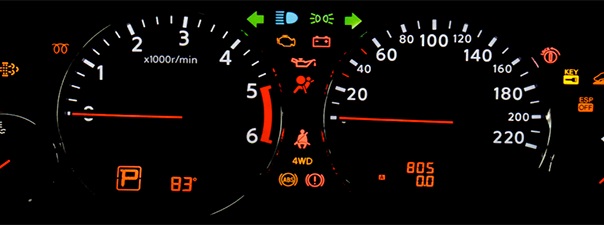
Lights Lights More Lights
-
Hits: 3560
The dash board of many of today's car are a wealth of information. Unfortunately, for many folks these light are mysterious as the Bermuda Triangle. To be honest a lot of the lights you see on your dash board are self explanatory but that is certainly not alway the case. So we have a listing of some of the more common lights found on today's vehicles. This is by no way a complete listing.
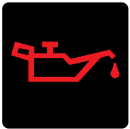
1) Oil Pressure Warning - this light will illuminate when the oil pressure sensor detects low oil pressure, the vehicle’s engine should be turned off immediately. Continuing to operate your engine could cause serious damage. Check the oil level and add additional oil if needed. If oil level is correct and light continues to show you should obtain professional help. Amber lights may be used in some vehicles to warn when the oil level is getting low and a top up is required.
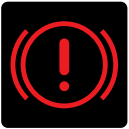
2) Brake System Alert - this light indicates a problem with your vehicles braking system. Such as low brake fluid level and professional help should be sought to rectify any issues, leaks or low brake linings are a common cause of the light. Some vehicles may use this symbol when a vehicle has an ABS fault (see below).
3) ABS Warning Light - this light will be displayed when you have a problem with your ABS braking system. Your brakes will still function b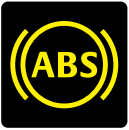 ut additional safety features will have been switched off by the control module. Professional help is needed to correctly diagnose and correct ABS problems. Note: The light illuminates briefly on engine start up but switches of automatically.
ut additional safety features will have been switched off by the control module. Professional help is needed to correctly diagnose and correct ABS problems. Note: The light illuminates briefly on engine start up but switches of automatically.
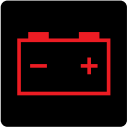 4) Battery Warning - This means the vehicle has stopped charging the battery and will eventually go rundown. Seek professional help to resolve the issue
4) Battery Warning - This means the vehicle has stopped charging the battery and will eventually go rundown. Seek professional help to resolve the issue
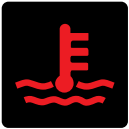
5) Temperature Warning Light - it warns the driver when the engine is overheating. It is best to stop the vehicle as damage to the engine is possible.
 6) Front Airbag - Indicates a fault with the airbag system and disables the airbag function. Amber light informs the driver when a passenger air bag has been switched off manually.
6) Front Airbag - Indicates a fault with the airbag system and disables the airbag function. Amber light informs the driver when a passenger air bag has been switched off manually.
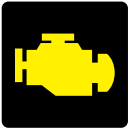
7) Engine Light - this light illuminates when the vehicle detects a fault with the engine management system usually related to emissions or engine operation. Do not ignore this light continuing to operate your vehicle can result in damage to expensive components.
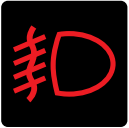 8) Rear Fog Light - Is activated and remains on while the rear fog lights in use. A green or yellow icon represents the front fogs. I have actually never seen a rear fog light I am not sure of the reasoning but I have seen foeward facing fog lights
8) Rear Fog Light - Is activated and remains on while the rear fog lights in use. A green or yellow icon represents the front fogs. I have actually never seen a rear fog light I am not sure of the reasoning but I have seen foeward facing fog lights
9) Seat Belt Reminder - Active as long as the vehicle is moving and the seat belt remains unfastened. Fastening seat belt will 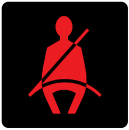 switch off the light.
switch off the light.
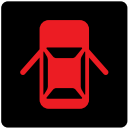 10) Open Doors Indicator - this symbol is usually turned on just after the driver starts the engine and informs them that one or more doors are closed incorrectly. On some cars the open door will actually be shown. Safely check doors and close any improperly closes doors.
10) Open Doors Indicator - this symbol is usually turned on just after the driver starts the engine and informs them that one or more doors are closed incorrectly. On some cars the open door will actually be shown. Safely check doors and close any improperly closes doors.
11) Hazard Warning Lights - activated by the driver to indicate a problem with their car to other motorists.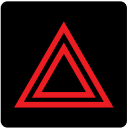
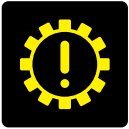 12) Powertrain Malfunction - this light will illuminate when the engine management system detects a fault that requires the engine to be shut down and requires immediate attention by a qualified technician.
12) Powertrain Malfunction - this light will illuminate when the engine management system detects a fault that requires the engine to be shut down and requires immediate attention by a qualified technician.
13) Traction Control Light - this light will illuminate along with the ABS light when the vehicle has a fault in the system. You may 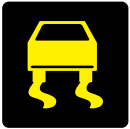 also see this light flash if your car begins to lose traction.
also see this light flash if your car begins to lose traction.
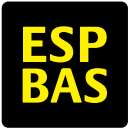 14) ESP/BAS Light - informs the driver about a potential problem with the Electronic Stability Program technology.
14) ESP/BAS Light - informs the driver about a potential problem with the Electronic Stability Program technology.
15 Tire Pressure Monitor – this light comes on when one or more tires are low on air. Consult your owner’s manual for the proper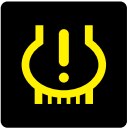 inflation and add air as needed.
inflation and add air as needed.
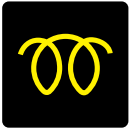 16) Glow Plug Warning - used on Diesel vehicles, you should not attempt to start the vehicle until the light goes out. The light is also used with the engine management light when a fault has been detected.
16) Glow Plug Warning - used on Diesel vehicles, you should not attempt to start the vehicle until the light goes out. The light is also used with the engine management light when a fault has been detected.
17) Warning Light - this light will illuminate with other lights and is usually accompanied by an error message in the display. 
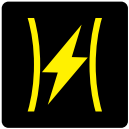 18) Electronic Throttle Control Light - It may briefly be enabled when the driver starts the engine when this indicator is activated, when there is a malfunction in the Electronic Throttle Control system, you should have a mechanic diagnose and repair the actual problem.
18) Electronic Throttle Control Light - It may briefly be enabled when the driver starts the engine when this indicator is activated, when there is a malfunction in the Electronic Throttle Control system, you should have a mechanic diagnose and repair the actual problem.
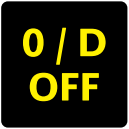
19) Overdrive Indicator - it shows the driver that the overdrive system has been turned off.
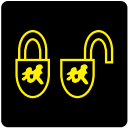 20) Child Safety Lock – when lit, the symbol shows you that the child safety lock are active.
20) Child Safety Lock – when lit, the symbol shows you that the child safety lock are active.
21) AWD Light - this light indicates that the All-Wheel Drive system is activated.
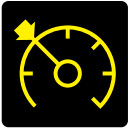 22) Cruise Control - this light or a similar is turned on, if the cruise control system is activated.
22) Cruise Control - this light or a similar is turned on, if the cruise control system is activated.
23) Front Defrost – Driver has turned on the front defrost forcing air from the climate control system to flow over the front windshield.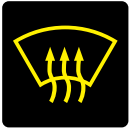
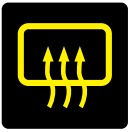 24) Rear Window Defrost - this is turned on once the driver presses the rear window defrost button.
24) Rear Window Defrost - this is turned on once the driver presses the rear window defrost button.
25) Bulb Burned Out - indicates a problem with one or more of the vehicles bulbs.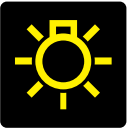
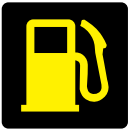 26) Low Fuel Notification - this light comes on when the vehicles fuel gets low.
26) Low Fuel Notification - this light comes on when the vehicles fuel gets low.
 27 AWD Light - this light indicates that the All-Wheel Drive system is activated.
27 AWD Light - this light indicates that the All-Wheel Drive system is activated.
28) Low Fuel Notification - this light comes on when the vehicles fuel gets low.
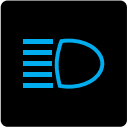 29) High Beam Light – is shown when high beams are engaged.
29) High Beam Light – is shown when high beams are engaged.
30) Turn Signals – Activated by driver sometimes before making a turning. Other times left on to help pass the time while driving on long or short trips 